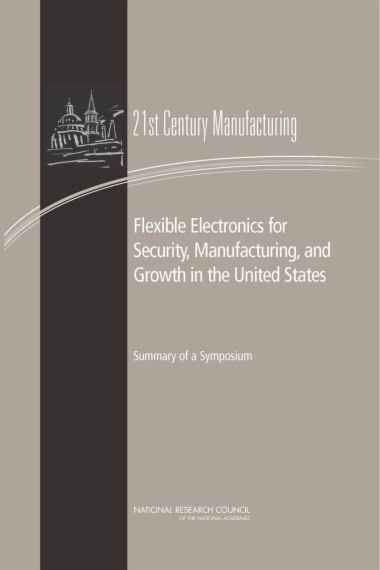

Flexible Electronics for Security, Manufacturing, and Growth in the United States is the summary of a workshop convened in September 2010 by Policy and Global Affairs' Board on Science, Technology, and Economic Policy to review challenges, plans, and opportunities for growing a robust flexible electronics industry in the United States. Business leaders, academic experts, and senior government officials met to review the role of research consortia around the world to advance flexible electronics technology. Presenters and participants sought to understand their structure, focus, funding, and likely impact, and to determine what appropriate steps the United States might consider to develop a robust flexible electronics industry.
Flexible electronics refers to technologies that enable flexibility in the manufacturing process as well as flexibility as a characteristic of the final product. Features such as unconventional forms and ease of manufacturability provide important advantages for flexible electronics over conventional electronics built on rigid substrates. Today, examples of flexible electronics technologies are found in flexible flat-panel displays, medical image sensors, photovoltaic sheets, and electronic paper. Some industry experts predict that the market for global flexible electronics will experience a double digit growth rate, reaching $250 billion by 2025, but most experts believe that the United States is not currently poised to capitalize on this opportunity. Flexible Electronics for Security, Manufacturing, and Growth in the United States examines and compares selected innovation programs, both foreign and domestic, and their potential to advance the production of flexible electronics technology.